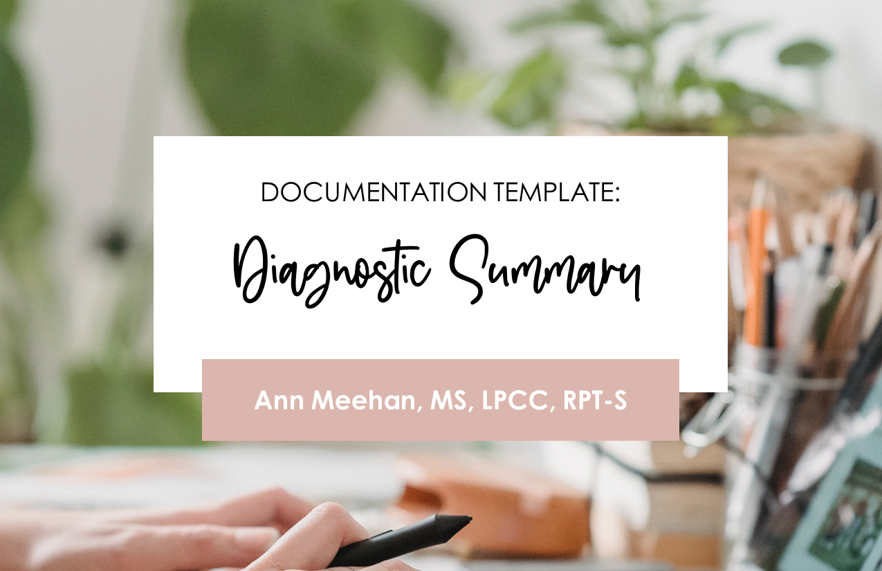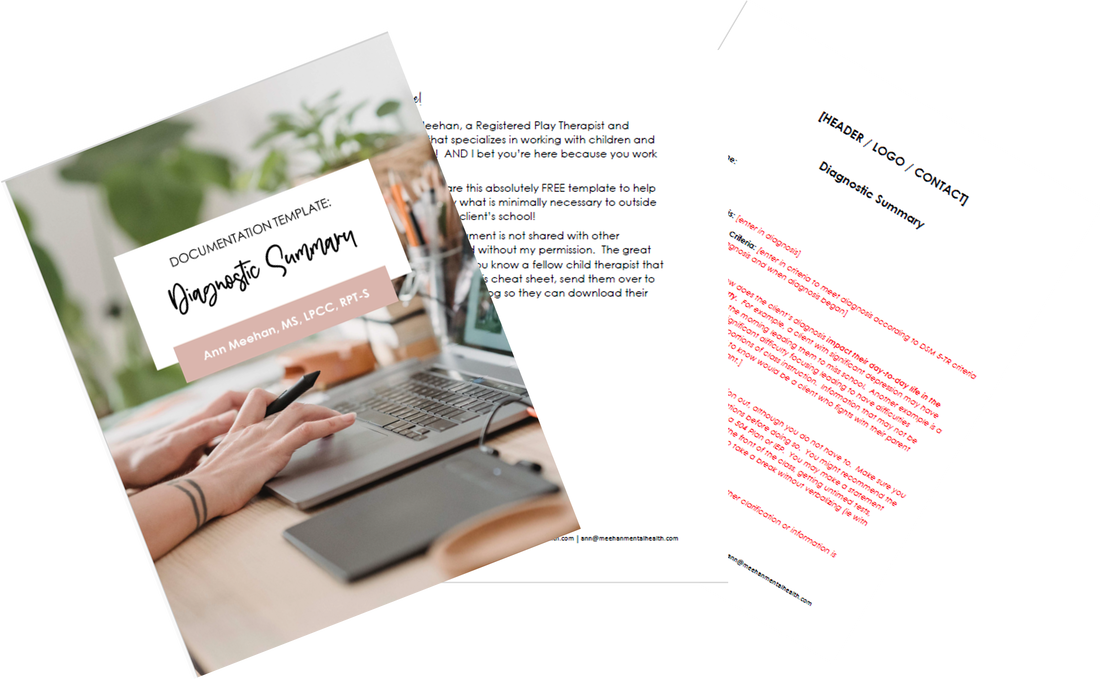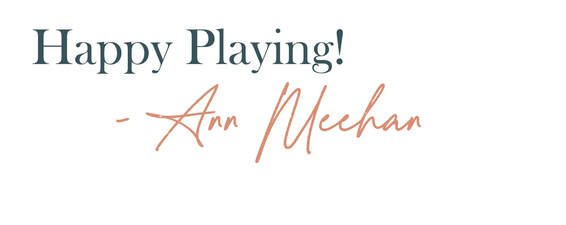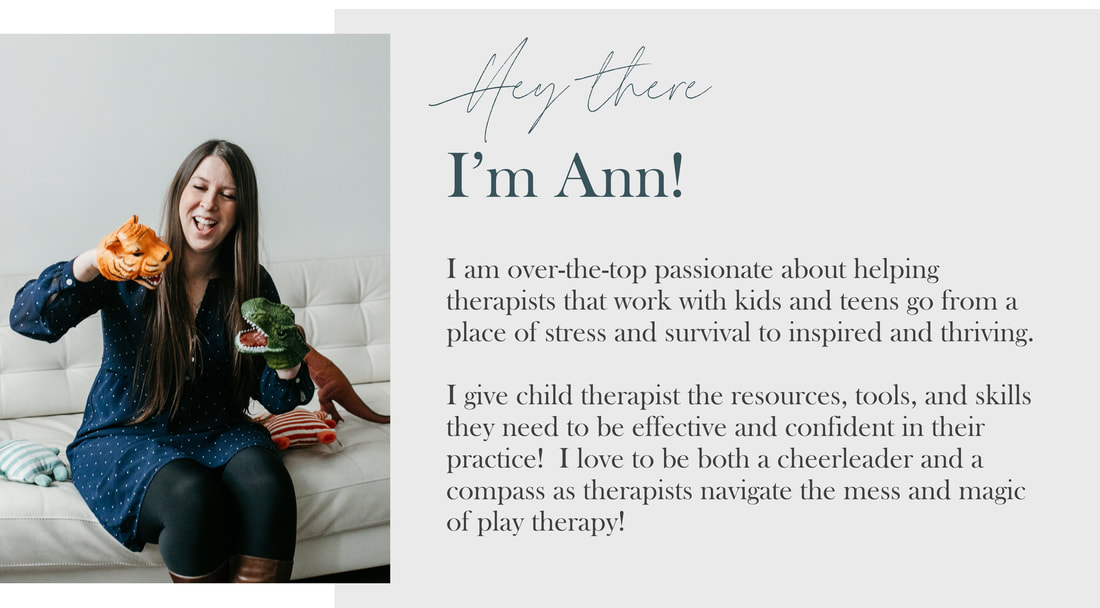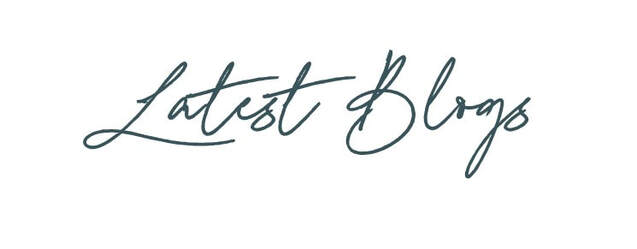|
When you are a therapist it turns out that there are a lot of lenses to consider with your documentation.
Just some of these? The client, their parents or guardian, insurance companies (if you take insurance), HIPAA, and of course your state laws and statutes. Wheeww…..
Let’s dive into one tiny part of all that - the HIPAA rule of Minimum Necessary Information.
This rule states: “The HIPAA Privacy Rule requires a covered entity to make reasonable efforts to limit use, disclosure of, and requests for protected health information to the minimum necessary to accomplish the intended purpose.” In short - we only communicate what is necessary to get the job done. “The job” may be communicating with a psychiatrist about symptoms so they can make decisions about medication, a social worker to update progress, OR a school that has requested coordination or documentation for extra services. Today I wanted to give you one of my favorite documentation resources I have used in my practice for years. This is a resource I use when I am getting a records request (most often from a school) to determine if a child could benefit from additional services, typically a 504 Plan or an IEP. Each state and school district may be different, but in Minnesota a mental health therapist is able to provide documentation of diagnosis to help a child get additional supports like a 504 Plan or IEP. Now this is where it gets complicated. It would be super easy for me to send a client a copy of their Diagnostic Assessment in the client portal for them to print off or digitally give to their school. But ethically, a comprehensive Diagnostic Assessment is a lot of information for a school to have about a child. This document includes things like birth history, functioning at home, mental health and medical diagnoses of family members, and the list goes on. For me, the entire Diagnostic Assessment seems like significantly more information than is needed to determine if a child could benefit from services. The solution? A nice short form I call the Diagnostic Summary. This short and sweet form has just the good stuff, the things that are essential for the school to know to determine if a child needs services. AND I have definitely used this in other situations where there may be sensitive information in the Diagnostic Assessment that is not necessary for the requesting party to know, and when discussing the ethics of releasing information with the client or family they are requesting lesser information to go to the requesting party. To fill out this form I just copy, paste, and edit the chunks of information from the initial Diagnostic Assessment so I'm not re-writing anything or starting from scratch. If this is something that you need for your practice (it is a form that literally takes less than 10 minutes for me to prepare and I often do so with the client to make sure I am getting all the information right) grab this absolutely free Diagnostic Summary Template HERE! Another resource that might be helpful to help you get back some of that precious free time? The 5 Minute Note Course! The 5 Minute Note gives you support on all things progress notes. Learn to shrink your note writing process to write effortless and effective notes within your therapy day! This course includes all the details, guides, and cheat sheets to help you know what to write and how to write it. AND includes templates and cheat sheets specifically for progress notes for play therapy! Check out more HERE! Loading...
2 Comments
Cathy D
1/8/2024 08:58:48 am
Hi Ann! I would LOVE to use this! However, I am unable to access the template, or any of your free resources- I get the "spinny wheel" no matter what browser or device I am using.
Reply
Ann Meehan
2/5/2024 05:49:25 am
Oh no! I'm so sorry that happened! It should automatically redirect you to the page - you can email me at [email protected] and I can send you the PDF!
Reply
Leave a Reply. |
Hi, there!I'm Ann Meehan, an LPCC, Loading... Archives
July 2024
Categories
All
|
Privacy Policies | Terms of Use | Disclaimer
Contact
[email protected] | Copyright Meehan Mental Health Services 2022
Contact
[email protected] | Copyright Meehan Mental Health Services 2022

